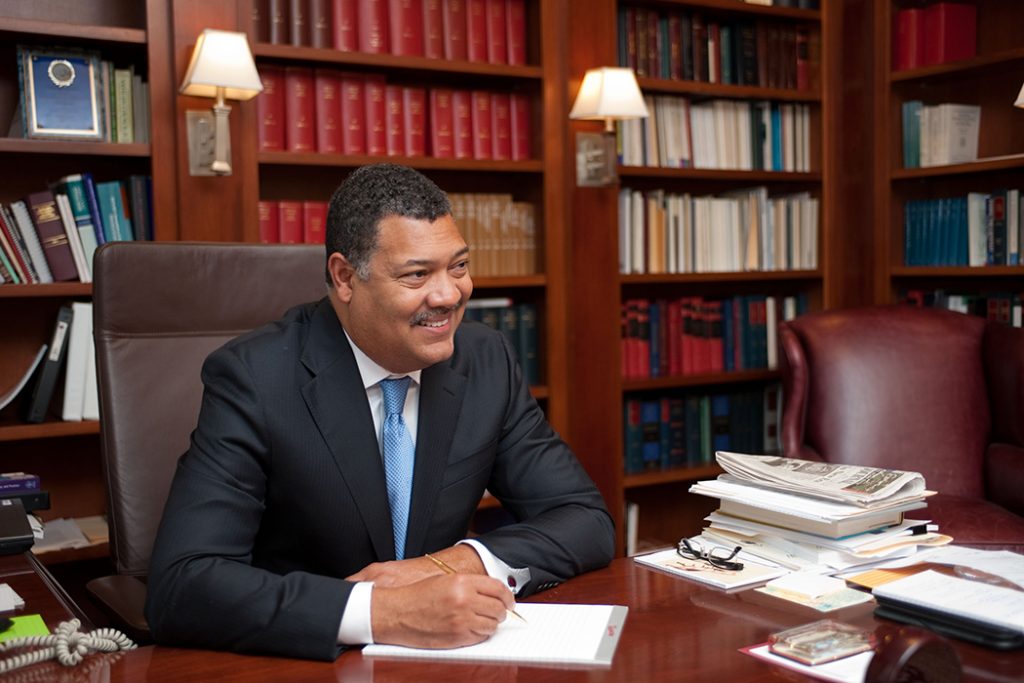You can’t necessarily tell much about people simply by looking at them, and you certainly can’t tell how they are going to behave. The decision not to indict white police officers in Ferguson, MO, and New York City over the deaths of black citizens sparked protests and bitterness across the United States, and raised troubling questions about the role of deadly violence in American policing and race relations. More recently, a terror attack launched by French citizens of Muslim background claimed the lives of seventeen people, provoking outrage and massive demonstrations by millions of people throughout France in support of French republican ideals.
Not that it ever should have, but categorizing people based on external markers—skin color, clothing, religious background, for example—no longer serves as convenient shorthand to define experience or belief or identity. As our societies become more multicultural, we are struggling to find productive ways to further conversations on race and identity in the face of escalating violence and fear. I believe that law schools can lead the way in framing and advancing these conversations, both within our campuses and within our communities.
Although we in the United States still deal with significant vestiges of race-based slavery, Jim Crow, and de facto segregation, focusing on that history alone will not allow us to reckon fully with the ever-more complex diversity that now surrounds us. It doesn’t really contend with immigration or globalization or religion or economic inequality across nations and within them, or with the fear that is rising around the world in multiethnic, class-riven societies in which citizens do not necessarily share the same daily experiences, histories, or expectations for the future.
A new challenge to unity in multicultural democracies is moving more clearly into focus: the exploitation of fear. Fear gives power to terrorism, but it also is used to justify violence—not only by those who wish to harm us, but also by those who claim to represent and protect us. How do we move away from the fear of the “other” as our societies become increasingly diverse?
As wealthy democracies like France and the U.S. become home for people from around the globe, nationalistic political parties and xenophobic public discourse are threatening to drag us back into a tribal understanding of identity and belonging. This is not an unexpected response to the anxiety that is rising in the face of growing terrorist threats and the cultural discomfort that is a byproduct of decades of immigration from around the world. But if left unchecked, it is a response that will lead to stagnation at best, and widespread civil violence at worst.
The perpetrators of violence and division are talking “at” others, rather than with them. Those of us who want our diverse societies to succeed need to raise our voices and launch conversations about forging a unity across diversity that is worthy of the democratic values we share. If anything important is to come out of those conversations, people need to be speaking with one another clearly and honestly.
This need for honest conversation has become starkly apparent in the aftermath of Ferguson and the tragedies in France. Although the failures of American society, particularly around the aspirations of young, black men, have been raised repeatedly as issues for discussion in reaction to Ferguson, there are still many people in this country who don’t want to talk about them. French society has serious unresolved problems with the social inclusion of young Muslim men, and it will splinter further if there is no participation by French Muslims in a dialogue about French values and identity that takes their perspectives and grievances seriously. These stories—this pain—cannot be ignored or dismissed.
We should be proud that we have eliminated so much reflexive bigotry, suspicion, and hatred from our everyday lives and our public life. But there are forces all around us that want to drag us back to the finger pointing, name-calling, and tribalism of us versus them. I believe we are uniquely positioned in legal education to provide structures for those discussions that recognize both the rights and responsibilities of democratic citizenship. Looks can be deceiving. If we are to embrace human dignity, and if we truly value democracy, it is up to each of us to engage with our fellow citizens across difference in a spirit of charity and with a desire to listen.


